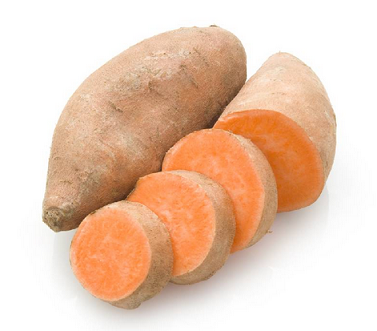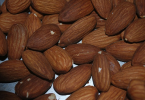Today’s question: can dogs eat sweet potatoes and yams? Are they good or bad for dogs? Scroll down for detailed answers.
The potato has received a bad reputation over the years. Potatoes, and sweet potatoes, have been looked upon as a food that we should do without. The starch, sugar, and carbohydrate combo of the potato leaves a lot of people disbelieving the necessity of potato in the diet. However! Potatoes are a whole food, full of nutrition, and relatively cheap and easy to make. One may grow potatoes at home or buy from the local market or farmer. Potatoes can be boiled, steamed, mashed, baked, and pureed. The versatility of the potato is a benefit that dissuades from the seemingly negative aspect of the potato family-carbohydrates.
With people beginning to incorporate the potato back into their diets, one may wonder if the potato may be shared with their pets. Can dogs eat sweet potatoes and yams?
Can Dogs Eat Sweet Potatoes and Yams?
Yes, they can, and they are so healthy that you could feed your dog sweet potato every day! Sweet potatoes, in particular, are very good for dogs. Not only are they rich in dietary fiber and beta carotene, they are also a rich source for vitamin C, B6 and minerals. The presence of these nutrients makes sweet potatoes a healthy alternative to commercial pet meals.
Sweet Potatoes are one of nature’s healthy foods that you can safely share with your furry pal. However, be sure to verify with your vet that your particular dog is able to eat, digest, and benefit from the sweet potato before you incorporate the food into his/her daily food intake.
Health Benefits Of Sweet Potatoes
Dietary fiber helps the digestive system
It is common knowledge that fiber helps the digestive system to function more effectively for people and the same is true for dogs. If your dog has diarrhea, the dietary fiber in the sweet potato will help in curing it. Fiber will bulk up the waste in your dog’s system, allowing the stomach to heal and remove toxins easier. The fiber component will help your dog feel full, thereby allowing your dog to eat less and may even lose weight, if this is a goal for your dog.
Losing a bit of weight and having a better functioning digestive system will allow your dog to have a stronger immune system. Dogs require care of the immune system like people do, since dogs become sick and develop disease as well. Offering sweet potatoes to your pup may help boost the immune system of your dog over time, keeping him/her healthy for a longer lasting life.
Beta carotene ensures fewer threats to health
Sweet potatoes contain beta carotene which helps in neutralizing harmful free radicals and reducing the threat of cancer for your dog. Since we are still without a cure or prevention for cancer, many pet owners try to prevent cancer from developing in a natural way.
Healing and caring for one’s body from the inside out is a good way in which you can prevent the development of disease, or at least prolong health. This theory also works for dogs and animals in general. Their bodies need more care than humans at times because their bodies age faster. Bringing in foods that promote health and neutralize free radicals will benefit your pup in the long run.
The sweet potato also has antioxidant properties. The effective antioxidant facilitates healing in case your dog is hurt or ill. As your dog gets older, it may start showing signs of aging and deteriorating health. Consuming foods containing beta carotene will help it to fight the negative effects of aging. All foods that contain these beneficial ingredients should be deemed safe for your dog and verified by your vet.
Whole foods without toxins or choking hazards seem to offer such a plethora of nutrition that any perceived negative aspect of the food should be outweighed by the extreme positivity of the food. Sweet potatoes, while high in sugar, have such good anti aging aspects, that as long as the sugar levels of your dog are where they need to be, your dog should not have any negative side effects.
White potatoes vs. sweet potatoes
Do not get mixed up between white potato and sweet potato. Sweet potatoes are somewhat more expensive than white potatoes, but contain a greater variety and quantity of nutrients. White potatoes cost less; regular potatoes are not good for your pet dog. White potatoes have large amounts of carbohydrates that may cause high blood sugar and obesity.
Sweet potatoes also have a high rate of sugar, but not nearly as high as white potatoes. Sweet potatoes may cost a bit more than their counterparts, but this potato is worth the extra price. The prevention of diseases and the lower risk of obesity related health concerns are reasons enough to avoid the white potato and only use the sweet.
Great nutritional value
Sweet potatoes contain vitamin B6, vitamin A and vitamin C, all of which are essential for your pet’s health. They also contain the minerals iron, copper and manganese. Your dog is receiving the majority of his/her nutrition through his/her dog food, however, adding human food to their dog food on occasion can help boost their overall vitamin intake.
In the event your vet has recommended supplements for your dog, or you know in advance that your pup has an upcoming surgery to prepare for, adding sweet potato to his/her diet may allow him/her a stronger body and healthier blood level than if you had depended solely on dog food nutrition.
Cook your yams/sweet potatoes
Raw sweet potatoes are not good for your dog, therefore, you must always ensure that they are well-cooked before your feed them to your pet. This is because the cooking process breaks down the starch and dietary fiber, making it easier for your dog to digest them. Cooking also makes the sweet potato taste sweeter.
Cooking the sweet potato will also help your dog to chew, swallow, and digest the potato. Dogs are known to ‘inhale’ their food quite a bit, and if a dog were to inhale pieces of sweet potato, and not chew well, the dog could choke on the potato.
Another risk of uncooked sweet potato is the risk for intestinal blockages. A piece of undigested sweet potato can run a large risk for your dog, so be sure to cook the potato and make the potato soft and easy to pass through the digestive track.
Give only moderate quantities
Sweet potatoes do contain substantial amounts of sugars and carbohydrates, but less than the amount contained by white potatoes. The high sugar and carbohydrate count can make your dog gain too much weight, ultimately leading to obesity. High sugar intake can also lead to diabetes and other obesity related diseases. Dogs are at risk of these developments just as their owners; therefore it is important you moderate their intake of sweet potatoes.
Sugar and carbohydrates also irritate the digestive system of your pet. Both of these ingredients may also cause diarrhea or an upset stomach. Use only a moderate quantity daily. If your dog seems to react more heavily against the sweet potato, leave the addition out of his/her diet and look for a different food to use a supplement.
Your dog does not need a sweet potato to survive, but the potato is simply a treat and nutritional benefit when used on an as-needed basis. If your dog does not seem to tolerate the sweet potato well, removing the potato from the diet will not cause any harm
If choosing to offer the sweet potato, you must make sure that you use them in small amounts. All food should be enjoyed moderately, but especially human food and the foods high in sugar. Some people believe that people food is not good for pets at all and should never be offered. Whether you believe pets should eat human food or not, many vets agree that this is actually not true. The offering of human food to your dog is especially beneficial, particularly if you are giving them healthy foods.
The truth is that most of us do feed our pets food off the table or leftovers. Whether offered as a treat, or mixed into their food, your dog is going to eat human food from time to time.
If your pup will be eating table food on occasion, it is best to offer only healthy food and use it as a part of their diet to reduce the begging and reduce stomach upset from occasional eating. If you are not sure what is safe among table foods for your dog, read up on it. You may be pleasantly surprised how safe and nutritious some of your foods may be for your pet!
Never use candied sweet potato
Although candied yams or sweet potatoes are possibly very popular among your family members, they are terrible for your dog.
The large quantities of sugar in them will upset your dog’s digestive system. Too much sugar in any type of food is bad for your dog. The sweet potato itself is a good option, but not when the potato has been treated, caramelized, or sweetened in any way. If you must make candied yams, offer your dog the parts that have not been treated and are closest to their natural state.
Choose a good quality carbohydrate
Dogs were primarily carnivorous, designed to chew and digest only bones and meat. But they have evolved to being omnivorous, eating plants and meat both. Some type of carbohydrate is essential for making dog food. Many commercially produced dog meals include inexpensive filler grains such as wheat and corn, whereas others use sweet potato as the starchy carbohydrate. Dogs do need carbohydrates in their diet; however, for a quality carbohydrate for your dog, review the ingredients carefully and choose the one with sweet potatoes. As white potatoes are less expensive than sweet potatoes, some companies choose them for their carb content in dog food products and you need to beware of that.
How to cook sweet potatoes
You may feed your dog the sweet potato in its whole form after cooking it in the microwave or oven. You can also make thin slices and cook it in low-fat cooking oil. In both cases you get healthier and less expensive dog treats in comparison to ready-made treats.
You must remember to never use raw or uncooked sweet potatoes. The skin, plant and leaves are dangerous for your dog so make sure that you remove all the skin before cooking.
You can add other vegetables, including carrots, peas, leafy greens, pumpkin, yams, squash or broccoli to sweet potato to make a vegetable mix for your dog. Cook your vegetable mix and mash it so that your dog will accept it. You can also add some white rice and ground meat to make a balanced meal. Divide the entire meal into portions and store in the refrigerator up to 2-3 days.
Related Posts:
References:








Please provide unbiased and scientific reference of data and research that proves/indicates that dogs, who are carnivores, can digest cooked sweet potatoes and absorb their nutrients.
I need full source citations and contact information.
Hi, you can contact dr. Dodds who seems to be expert in pet nutrition. Here is her blog http://drjeandoddspethealthresource.tumblr.com/post/55006392224/sweet-pototato-white-pet-dog#.WBLE9forJPY
I’m sure she will have more insight for you.